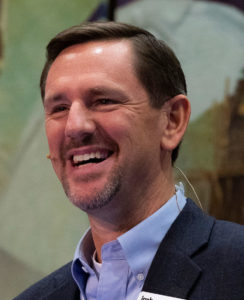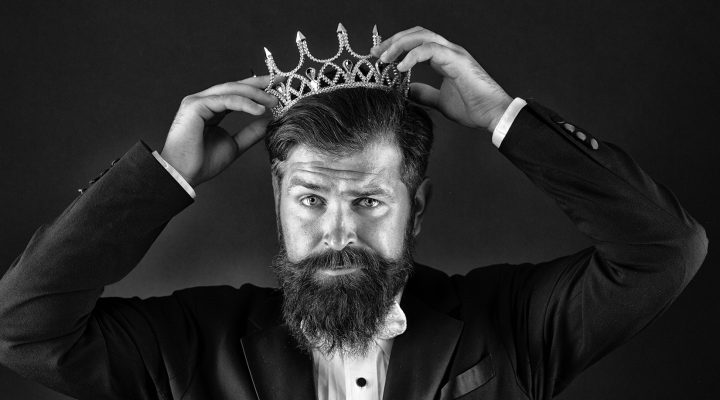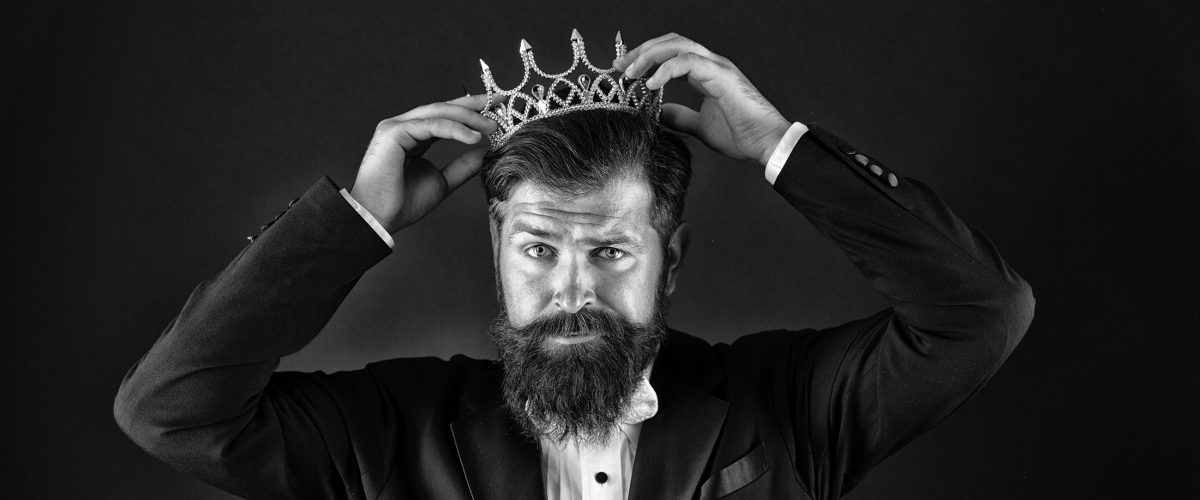Most of the noise at this month’s Southern Baptist Convention annual meeting was from men attempting to cement their pastoral power over women, Christian nationalists attacking religious liberty, messengers seeking to censure SBC leaders publicly, and the convention voting to oppose in vitro fertilization. These debates tend to grow from two fundamental priorities — the building up of the family and the spreading of the gospel.
In this year’s resolution “On the God-Given Rights and Responsibilities of Parents,” SBC messengers declared the family to be “the first and most foundational institution of society” and said God as the “sovereign authority over all … has entrusted to parents certain rights and responsibilities as the primary stewards of their children.”
In this year’s resolution “On Evangelism and the Great Commission,” the SBC committed to “evangelistic cooperation through all means possible, including joint mission trips, the sharing of church buildings, school release time programs, vacation Bible school, student conferences, community ministries, sports evangelism, special evangelistic services, and other efforts, building a lasting legacy to hand off the mission to the next generation.” They also added a commitment to “take the gospel to the ends of the earth and sacrifice all for the sake of the mission.”
Southern Baptists believe all society will collapse if their definitions of the family and the gospel collapse. They also believe anyone who doesn’t accept their gospel, which the family is a reflection of, will burn in hell for eternity, including their own children.
“Southern Baptists believe all society will collapse if their definitions of the family and the gospel collapse.”
Key to spreading their gospel are pastors, who offer church members the theological training to build their families and the missional opportunities to spread the gospel. But because Southern Baptists have chosen to interpret reality through the lens of hierarchy, inevitably a conflict of interest arises over which priority will take precedence — the family or missions.
What happens when pastors, who are the primary authorities in Southern Baptist churches, and husbands, who are the primary authorities in Southern Baptist homes, disagree with one another? And what happens when sacrificing all for the sake of the mission includes sacrificing the family?
The highest calling on the planet?
The Pastor’s Conference opened Sunday night with a presentation from Paul Chitwood, president of the International Mission Board, who said, “I believe the role of the pastor to be the highest calling on the planet.” His words were eerily similar to John MacArthur’s claim that the pastorate is “the highest location” one can “ascend to — that power in the evangelical church.”

Paul Chitwood
Chitwood said the calling of the pastor is to equip the church to carry out the Great Commission. And he said through the IMB, SBC pastors were able to “expand the ministry of (their) church to 155 nations around the world this past year” and were able to share the gospel “with over 1 million lost souls.”
“Pastor, could you imagine waking up with that on your shoulders every day?” Chitwood asked, referring to one particular mission field. “More than 46,000 people in Greg’s assigned mission field die lost every single day and enter eternity to be separated from Christ in hell.”
Whether the speakers at the Pastors Conference and the annual meeting were discussing missions, chaplains, evangelism or many of the other SBC related ministries, the gospel of saving people from hell had its fingerprints on everything.
As pastor Justin Ramey of Crider Baptist Church in Princeton, Ky., said: God “commands all to joyfully serve the Lord alone or burn in hell for all eternity.”
In today’s SBC, which has become overrun with Calvinist and complementarian hierarchies of sovereignty and submission, the threat of an eternal conscious torment view of hell is the coercion that props up the hierarchy, in which the highest calling is being a pastor, a role reserved only for men.
Reckoning with power
Spending a week watching these Southern Baptist pastors sacralize their position as the highest power and highest calling is a visual demonstration of what Northern Seminary professor David Fitch discusses in his new book, Reckoning with Power: Why the Church Fails When It’s on the Wrong Side of Power.
“There is worldly power, which is exerted over persons, and there is godly power, which works relationally with and among persons,” Fitch explains. “Worldly power is coercive. A person or organization takes control of things with worldly power. Worldly power is enforced. It is prone to abuse. God’s power, on the other hand, is never coercive. God works by the Holy Spirit, persuades, never overrides a person’s agency, convicts, works in relationship. Through his power, God heals, reconciles and reorders not only our personal lives but the social worlds we live in as well.”
According to Fitch, when Christians choose to wield the worldly power of hierarchical coercion over others, “All hell breaks loose, abuse and trauma follow, and we have a dumpster fire on our hands.”
If there was ever a way to describe the current condition of the SBC, that would be it.
Now imagine how that dumpster fire might spread when it involves pastors and husbands feeling the pressure to choose between family and missions.
Focusing on the young and impressionable
It’s one thing to imagine a generic 46,000 people dying every day and burning for eternity. But it’s quite another to imagine your own kids experiencing that for not submitting to your theology. So much of the focus at the SBC annual meeting was on saving the souls of young people.

Shane Pruitt
“According to statistics, 77% of all Christians surrender to Jesus as Lord and Savior before the age of 18, 95% before the age of 30,” said Shane Pruitt, national Next Gen director for NAMB. “I believe in the sovereignty of God. I believe God can save whom he wants when he wants. … But practically speaking, if we don’t reach a generation by the time they turn 18 or 25, we lose a whole generation.”
Practically speaking, that’s a lot of pressure to have on your shoulders. Your six-year-old might burn for eternity. And you only have about 12 years left to make sure they submit genuinely enough to be a true conversion. But you also need to be concerned about the salvation of the entire world. Time is ticking.
We make a lot of really uninformed and unwise decisions as kids and into our 20s. In her book The Power Worshippers, Katherine Stewart explains how these groups focus on young kids because the youngest are also the most impressionable.
Regarding one club she encountered at a public school, Stewart explained: “The purpose of the club was to convince children as young as 5 that they would burn for an eternity if they failed to conform to a strict interpretation of the Christian faith. … They referred to our public school as their ‘mission field’ and our children as ‘the harvest.’”
Considering LGBTQ people as threats
Identifying as anything other than a heterosexual male or female is seen as the spiritual apocalypse of all sin due to opening up the binary these hierarchies depend on. So Southern Baptists are afraid the nonbinary spectrum of the LGBTQ community might break down the family and turn their kids gay, thus damning their souls to an eternity of burning.
Pruitt explained: “One of the statues of worship in our culture today, and is being propped up today, is LGBTQ. And we see statistics like this according to Pew Research that says one in six Gen Z identify as LGBTQ. According to Pew Research, roughly half of Gen Zers (48%) say gay marriage is a good thing for our society. Roughly half of Gen Zers (50%) think that society is not accepting enough of trans and nonbinary identifying people.”
According to Pruitt, God is the creator and designer who gets to define who we are. “And it’s very arrogant for us to think we can redefine what God has already defined.”
“You are male because a holy, on purpose creator God said so.”
Thus, regarding LGBTQ people, Pruitt says: “God is holy. God is perfect. God is on purpose. He does not make mistakes. You are made in the image of God. And sometimes we can use double negatives. God don’t make no junk. You’re on purpose. But God is also on purpose and he is perfect. So you are male because a holy, on purpose creator God said so. You are female because a holy, on purpose creator God said so. And he is perfect. And the word ‘oops’ is not in his vocabulary. And it is not hateful to say that. In fact, I would submit it’s more unloving to affirm or celebrate a lie in someone that somehow God made a mistake on them.”
LGBTQ Christians typically agree God doesn’t make mistakes, which is why they identify as they do.
But Southern Baptists think they have to save their kids from eternal conscious torment during the time where many of their peers are identifying as or approving of LGBTQ people. And thus, LGBTQ people are regarded as a threat.
Demonizing and ignoring the children
With such a fear of children turning out gay and burning in hell forever, one might assume SBC pastors would encourage cultivating healthy relationships with their children. But fear of punishment gives birth to coercion rather than to healthy, relational love. And unfortunately, they love their selves in the same way they love their neighbors.
“People say this, ‘Well, you just need to be your authentic self,’” Pruitt said. “You know what our authentic self is? A sinner in need of a Savior. … Have you ever spelled out sin before? S-I-N? What’s at the middle of sin? You ain’t the solution.”
And what do sinners deserve? Violence against their bodies of course. Pruitt explained: “When they shoved the crown of thorns on his head, that should’ve been me. When they spit in his face, that should’ve been you. When they nailed him to the Cross, that should’ve been us.”
There is no healthy presence of authentically loving self in this scenario. You deserve to be violently crucified and to be spat upon just like LGBTQ people deserve to burn forever, they say.
Distancing from family

Jeff Iorg
And ironically, just as their coercive hell hierarchy leads them to distance themselves from LGBTQ people, it also leads them to become distant from their own children, choosing to prioritize missions over family.
When Jeff Iorg was considering whether to accept the position as president of the SBC’s Executive Committee, he asked his daughter for her thoughts. As he explained in his sermon: “She said, ‘Dad, from the day you moved our family to the West Coast to plant a church, our family has always been about the gospel. And this is your opportunity to minimize the distractions and help Southern Baptists stay focused on what we’re really here for. … Your grandchildren do not need a grandfather hanging around their basketball games. They need an example of a man who will follow God in his mission above all else.”
And that’s ultimately what the SBC’s coercive theologies of power lead to. Rather than being present with your grandchildren, you have to embrace your position of the “highest calling” on the planet, kiss grandfathering goodbye and view your grandchildren as a distraction.
Thus, the fruit of the SBC’s belief in hell is the sacrificing of the family on the altar of missions.
What kind of “family values” is that?

Rick Pidcock
Rick Pidcock is a 2004 graduate of Bob Jones University, with a bachelor of arts degree in Bible. He’s a freelance writer based in South Carolina and a former Clemons Fellow with BNG. He completed a master of arts degree in worship from Northern Seminary. He is a stay-at-home father of five children and produces music under the artist name Provoke Wonder. Follow his blog at www.rickpidcock.com.


